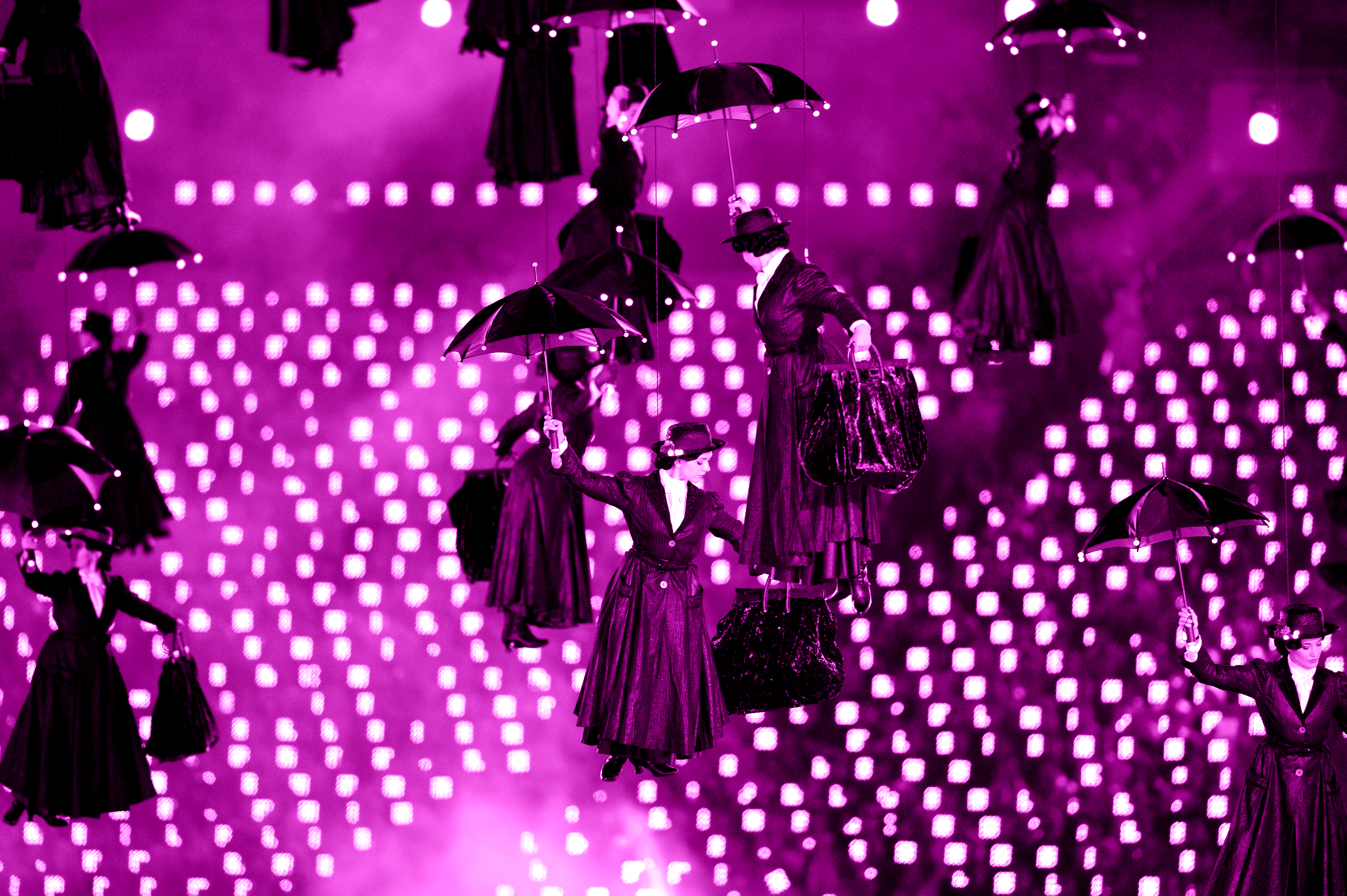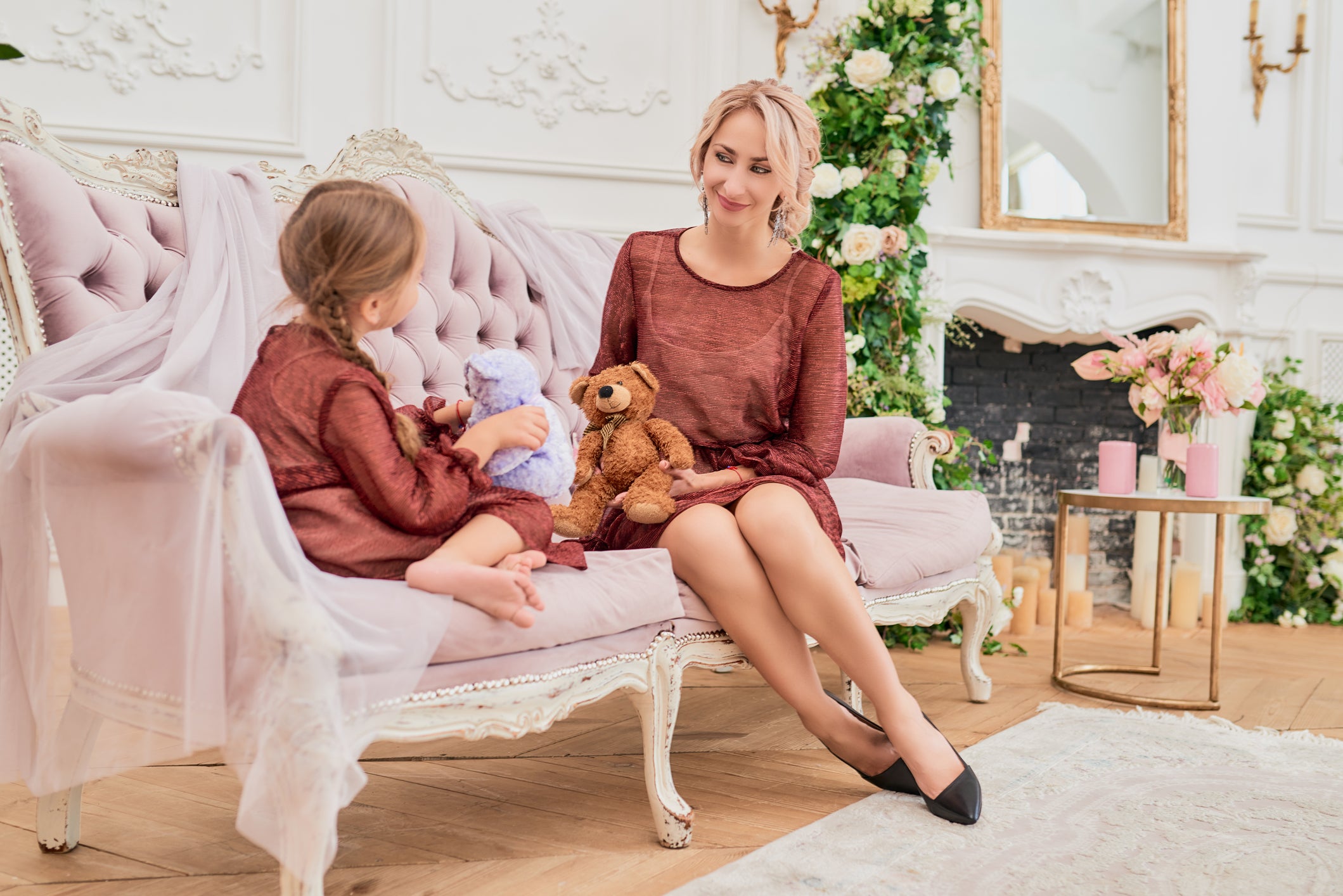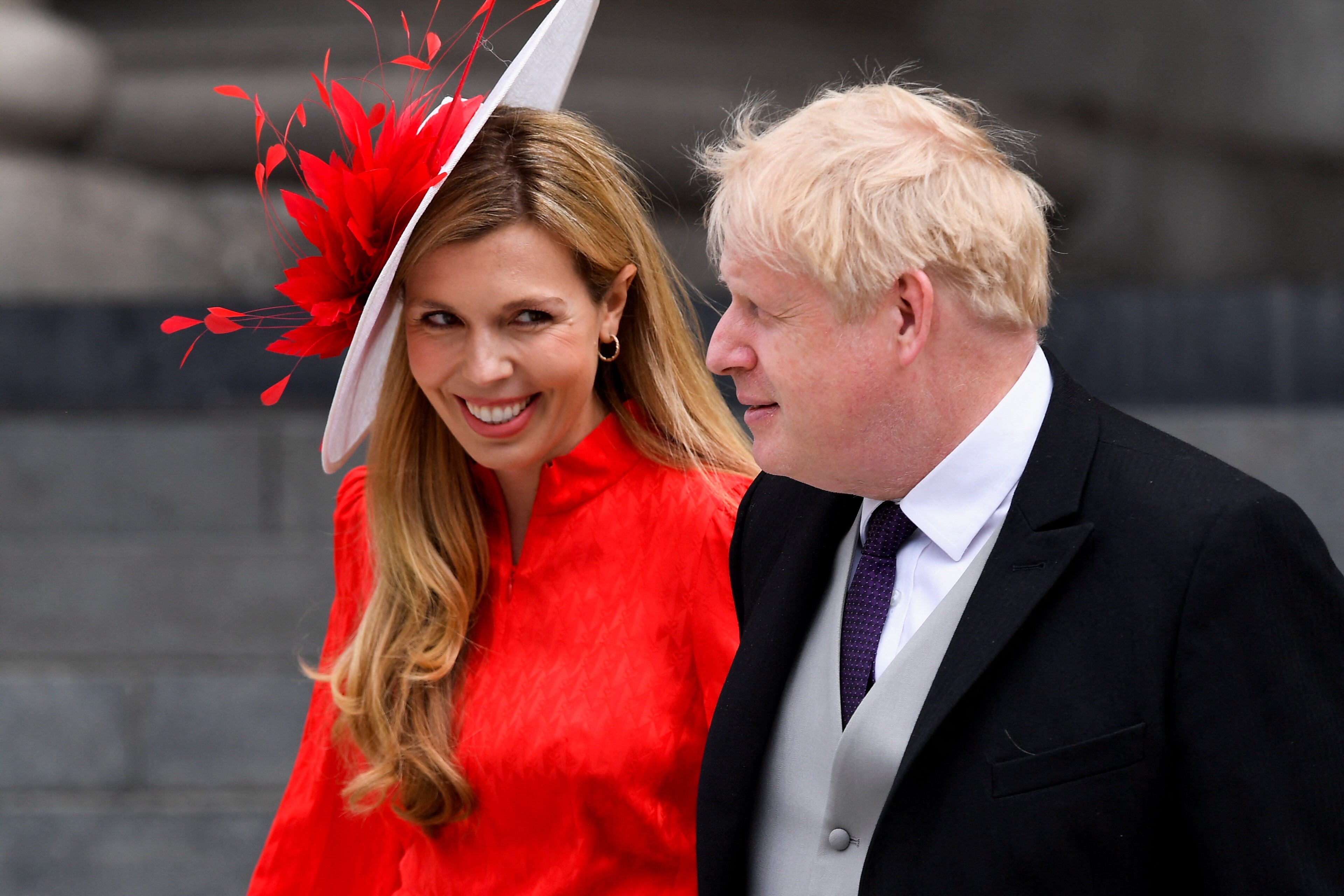‘No, I can’t do it, no matter how much they pay’: Inside the world of nannies to the super-rich
Extravagant meals out with the family or banished to a separate table? Katie Rosseinsky explores the contrasting experiences of those looking after the children of the wealthy


Your support helps us to tell the story
From reproductive rights to climate change to Big Tech, The Independent is on the ground when the story is developing. Whether it's investigating the financials of Elon Musk's pro-Trump PAC or producing our latest documentary, 'The A Word', which shines a light on the American women fighting for reproductive rights, we know how important it is to parse out the facts from the messaging.
At such a critical moment in US history, we need reporters on the ground. Your donation allows us to keep sending journalists to speak to both sides of the story.
The Independent is trusted by Americans across the entire political spectrum. And unlike many other quality news outlets, we choose not to lock Americans out of our reporting and analysis with paywalls. We believe quality journalism should be available to everyone, paid for by those who can afford it.
Your support makes all the difference.Forget Succession or The White Lotus. If you want a real insight into the cosseted world of the 0.01 per cent, you need to speak to their nannies. They see the lives of the rich and famous at close range, viewing their extravagances and idiosyncrasies from a ringside seat. Kids’ birthday parties have production values to rival the average Oscars ceremony, holidays are spent on superyachts and fancy gifts are a matter of course – just ask Rachael Gunn, who accumulated some impressive souvenirs during her four-year stint as a nanny for the super-rich.
“I got given a Chanel bag – I almost died on the floor,” the 33-year-old, who now runs her own operations consultancy, recalls. “At first I thought I’d misheard [my boss], and assumed I needed to return it. She said, ‘No, I would’ve asked my PA to do that. Do you want it? I just need to get it out of my closet.’” Another memento was a “beautifully embossed” Smythson notebook, a gift from the “amazing goodie bag” one employer took home from Sir Elton John’s annual white tie and tiara ball. But few of the presents she received, Gunn notes, had much emotional significance behind them. “Virtually none of [the bosses] were gifting it to me because they appreciated me, it was more, ‘I don’t want this, just give this to someone,’” she notes.
Although the work can be glamorous and rewarding, entering the inner sanctums of the elite “is not for the faint-hearted”, says childcare expert Nanny Sharz, who has spent almost two decades as a travel nanny for celebrities and high-net-worth clients. For a case in point, just look at the recent claims made by Boris and Carrie Johnson’s former nanny Theresa Dawes. She alleges that she was sacked just three days into the role, after Carrie’s mother spotted her having a glass of wine with the former PM; in an interview with the Daily Mirror, she said that she was given just 15 minutes to pack her bags (the Johnsons have described her account as “totally untrue”, branding it “a completely false story for financial gain”).
The boundaries between a nanny and their employer can be tricky to navigate. Some families will embrace the nanny as one of their own, as parenting and sleep expert Hannah Love found when she worked for a string of professional golfers in the Noughties. “Every single one of them just treated me as part of their family,” the former paediatric nurse says. “Talking to some other nannies, they’ve had different experiences, and when they’ve been out at night, they’ve had a separate table [to the family], or when they’ve flown somewhere, they’ve been in standard class with the children. But we all flew first class, we all sat around the dinner table, I would have a glass of champagne offered to me the same as they were.” She attended parties with the family, and even used to go swimming in Gary Lineker’s pool (the footballer was a friend of her clients).
But for others, there is a more obvious dividing line between staff and employer. Gunn spent extended periods working with Middle Eastern families spending the summer in the UK, who were unable to fly out their usual domestic staff due to visa issues. She would wear a uniform, often reporting to a household manager or a butler, and had to follow “a whole standard operating procedure about when it’s appropriate to enter rooms, how you enter rooms, how you communicate, all that kind of thing”. “But I actually found it easier working for the people who are used to having domestic staff, in some ways, because I knew exactly what to expect,” Gunn says. “There’s a very clear structure.” Finding a family where you get on well with the parents and the kids is “gold dust”, as Sharz puts it. To get more of a feel for potential clients, 27-year-old Adam* tends to embark on a brief trial period. “I’m always intrigued, and it’s good experience, but some of them, you’re like, ‘No, I can’t do it, no matter how much they pay,” he says – like if they turn out to be arms dealers, for example.
The children of the wealthy have schedules that can rival that of the average high-flying CEO. Gunn would often have to submit timetables for the next day before 6pm, so that the parents (or, at least, their house manager) could cast an eye over it. “I didn’t really work for anyone I’d categorise as relaxed, so they generally always had a very specific schedule,” she says. “What used to drive me crazy is when they used to say, ‘[the kids] can’t cry between certain times because we’ve got guests coming.’” When the kids get older, “you become pretty much their PA”, Adam says. “It gets that regimented. You’re getting their driver to take them to a cello or piano lesson or Latin lesson, straight to another club, then organising their dinner with the chef.”

In Gunn’s experience, some parents had child development consultants on hand to make sure that their children were cramming enough into their day. Many employers, she adds, “don’t like you to eat at the same time as the child, so generally, you wait for nap times” – she would end up grazing on cereal bars and fruit until the kids had gone to bed. It’s a far cry from other nannies’ more lavish dining experiences. “You eat out at really nice places, and you get a card or some petty cash from the family, so you’re not going into any of your expenses – everything’s paid for,” Sharz says.
Even when we fly places we fly on a [private] jet, we don’t go through a normal airport
Ella*, who spent her summers nannying on a superyacht when she was a student, recalls her wealthy British employers often spending several thousands of pounds on lunch. “For me, as a kid, going out to tea was the biggest treat ever, and we weren’t allowed to have Diet Coke... But [the family] were ordering Laurent-Perrier on tap … My best friend came out for a weekend one year, and they paid for everything.” The flipside of near-constant eating out, of course, is that the bosses’ catering skills leave a lot to be desired. “One lady I worked for came into the kitchen and was trying to make herself a cup of tea, and she couldn’t work out how to switch the kettle on,” Gunn recalls. The flat had been in her employer’s family since she was born, but “I don’t think she’d ever been in that kitchen – she didn’t know where the mugs were”.
The super-rich, Adam adds, “don’t even really interact with the real world. They’re in chauffeured cars [going] directly to restaurants, even when we fly places we fly on a [private] jet, we don’t go through a normal airport … It’s a whole different planet.” He has previously been flown out to different countries “to pick up a single item” – indeed, nannies often have to be prepared to travel long distances at a moment’s notice (although doing so on a private jet probably mitigates the inconvenience somewhat). “When you work with high-net-worth families, they don’t always tell you the plan,” Sharz says. “It’s very much like, ‘in an hour, we need to be here, we need two bags packed.’ It’s very on the spot, very last minute.” Working with pro golfers, Love would end up “going through different time zones each weekend … I would be in a suite with the family where the dad and mum were in one room and I was in another room with the children. And the dad was getting up to play potentially a million-pound round of golf the next day.” No pressure to keep them quiet through the night, then.
I’m the nanny, my job is obviously to care for the family, but I’ve now ended up being a counsellor and a shoulder to cry on
Planning birthday celebrations is also a major undertaking. Sharz worked for one family who marked their son’s first birthday by throwing a pool party. And if that sounds relatively understated, they bought him “three or four outfit changes” and flew a theatre company from the UK to Africa, in order to put on a play inspired by the first year of his life. “And he slept through the whole performance.” Adam has attended parties “where they had roller coasters” – and meeting the parents of his charges’ friends can be pretty noteworthy too. “It’s really strange, because I’ll have literally been watching a film with [them] in, or I grew up watching that person,” he says.

But nannies also see beyond the extravagant facade. “I feel so sorry for [celebrity clients] because they can’t just go out freely,” Sharz says. When she headed on holiday with one famous employer and her children, her boss “was getting noticed on the beach… That’s the time that you’re meant to just have with your family, and she was having to take pictures with people and sign autographs. You literally get no privacy. And seeing it from a nanny point of view, it’s quite sad to watch.” She has often had to provide emotional support for the parents, too. “I’m the nanny, my job is obviously to care for the family, but I’ve now ended up being a counsellor [and] a shoulder to cry on [for my employer],” she explains.
And when you have to move on, saying goodbye to kids you might have raised from birth can be tough. When she left one golfing family in order to go travelling, Love remembers how she “cried all the way home”; when she returned, “the first thing I did was I went and visited them”. Sharz also likes to keep in touch with some of her closest former clients with visits and FaceTime calls. But sometimes drifting apart is inevitable. “A lot of the time they respect that you were great for the child during this time, but now [they’ve] got someone new and they don’t like to keep in contact,” she adds. “So it really just depends on the individual.”
Still, if you can hack the long hours and the sometimes outrageous demands, it’s certainly a career like no other – and you can probably accrue enough material to spin out an HBO drama of your own. “The way I see it is that it’s experience, isn’t it?” says Adam. “A lot of them are opportunities that you wouldn’t get to do in normal life, so you might as well just say yes, and hope for the best.”
*Names have been changed



Join our commenting forum
Join thought-provoking conversations, follow other Independent readers and see their replies
Comments